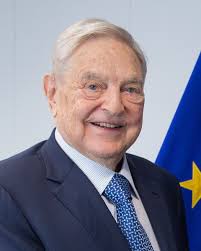
Introduction
George Soros, the billionaire investor and philanthropist, has played a significant role in shaping global finance and politics over the last few decades. His investments and philanthropic efforts have made a lasting impact on various social, economic, and political issues worldwide. With current events highlighting the role of wealth in politics, understanding Soros’ influence is more crucial now than ever.
Soros’ Early Career and Philosophy
Born in Hungary in 1930, Soros fled to the United Kingdom during World War II, where he later attended the London School of Economics. He moved to the United States in 1956 and founded the Quantum Fund in 1973, which he famously grew into a multi-billion dollar hedge fund. Soros is known for his investment philosophy, which often involves betting against prevailing market trends, making him a notorious figure in financial circles.
Philanthropic Endeavors
Beyond his financial acumen, Soros is recognized for his philanthropic contributions, especially through his Open Society Foundations (OSF). Founded in 1979, OSF aims to promote democracy, human rights, and various social reforms across the globe. Since its inception, the foundation has invested over $32 billion in initiatives ranging from education and public health to refugee assistance and criminal justice reform. Recently, as the world grapples with the COVID-19 pandemic, Soros pledged significant funding to support vaccine distribution in struggling nations.
Political Influence and Controversy
Soros’ political activism has made him a polarizing figure. He has actively supported progressive causes, including immigration reform, LGBTQ+ rights, and racial equity. This involvement has attracted backlash from conservative circles, often portraying him as a puppet master behind various political movements. In 2021, reports surfaced about his funding of numerous campaigns that challenged conservative policies, particularly in the U.S. These actions have reignited debates about money in politics and the ethical implications of such financial contributions.
Conclusion
George Soros remains a central figure in discussions about wealth, power, and influence in the modern world. His dual identity as both a financial mogul and a dedicated philanthropist presents a complex picture of the potential impact that individuals can have on global affairs. As political landscapes evolve and new challenges arise, the significance of Soros’ actions may grow even further, prompting ongoing scrutiny and dialogue regarding the intertwining of wealth and public policy. It is essential for global citizens to be aware of such dynamics, as they recognize the growing importance of influential figures in shaping events around the world.



